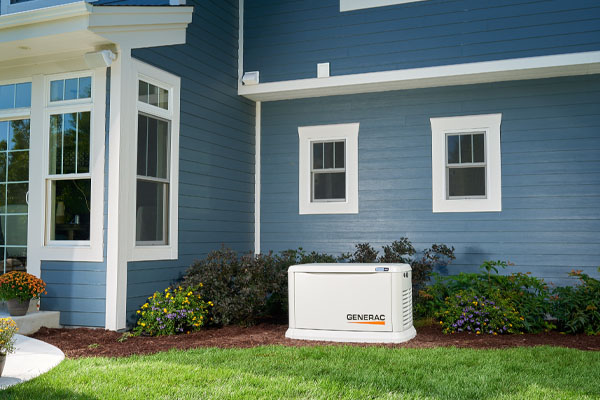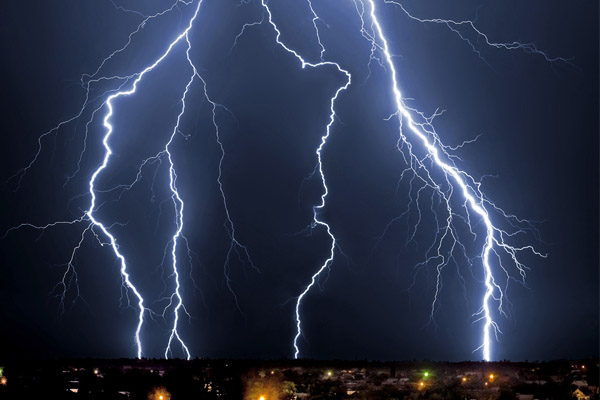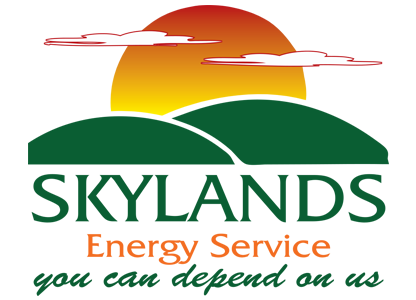
We have made a lot of progress for dependable power. However, nothing is perfect, and this includes even the most modern power grid. As a result, many homes and offices have on-demand generators to supply power in case of a power outage. Areas that aren’t within the grid’s power supply also rely on generators for power.
However, many still ask, “How does a generator work?”. Read on to find the answer to this query.
How Does a Generator Work?
Table of Contents
A generator can be referred to as a whole-house, backup, on-demand, or standby generator. This appliance converts mechanical energy to electrical energy. Next, the electricity is transmitted and distributed around your home or other structure. A generator also powers ships, automobiles, aircraft, and trains. Many areas also use generators as an alternative source of power.
A generator uses the electromagnetic induction principle to work. The generator is equipped with a copper conductor coil rotating between a magnet shaped like a horseshoe. This coil has a metal core, and they are called an armature. This component is typically connected to a motor or another mechanical energy source. The rotation of the armature produces the energy needed to power the generator. The generator’s engine utilizes fuel to operate, such as diesel, natural gas, petrol, or natural energy.
The coil’s rotation will interfere with the magnetic field within the two magnetic poles in the horseshoe-shaped magnet. This interference agitates the electrons inside the conductor. As a result, the electric current is induced to flow.
The alternator is also called the generating unit. It generates the alternating current, which is the same thing that’s supplied by the power grid. Shortened to AC, the alternating current is a stable and dependable kind of power. It can power sensitive appliances, like air conditioning units, computers, and surgical equipment, without worrying about fluctuations.
Generator engines are available in different sizes. The generator type with the largest engines is the liquid-cooled ones. These generators have a pump that distributes the coolant throughout the unit as a fan blows to decrease the coolant temperature. If you live in a hot and humid area, the best type to use is the liquid-cooled generator so that overheating doesn’t happen.
How Much Power Can a Backup Generator Produce?
A generator’s power capacity depends on its engine size. A generator with a larger engine can generate more energy to power more homes or structures. W (Watts) or kW (kiloWatts) are what’s usually used to indicate the unit’s output. Watts is calculated like this: Volts x Amps.
For example, a 10kW generator that delivers 240 Volts has an output of around 41.67 or 42 amps. This means it can sufficiently power one 500 W furnace fan, one 1000 W sump pump, one 1000 W microwave oven, one 1200 W refrigerator, and around ten lighting circuits that has a total of 1000 W. There is also enough power for smaller appliances, including a radio, a laptop, and a desktop computer, depending on how much input they need.
Benefits of Using an On-Demand Generator
A standby generator’s main advantage is having access to an alternative power source during an emergency. Power outages can and will happen. Therefore, these machines are crucial, especially if you live in an area with unreliable electricity sources. Having access to a generator is also essential for businesses and services that rely on electricity to operate. Some examples of this are clinics, hospitals, and pharmacies.
Emergencies, like natural disasters, meaning that standby generators are needed to be used by medical staff and care personnel. Generators provide lighting and power to appliances and equipment for when they need to conduct rescues, surgical procedures, and other vital services.
Another main benefit generators give is waste and damage prevention. Generators turn on right away when there is a power outage. This way, all equipment, and appliances keep running and have smooth and unhampered operations. As there is still power to ensure that the appliance remains on, food, medicines, and other products will continue to be produced. A generator that produces electricity means that microorganism growth and damage from spoilage are prevented. There will also be continued access to computers, so there is no lost time from work. This is especially important for people who work from home. You ensure the comfort of your home as well because your HVAC system continues to operate.
Features Of A Whole-House Generator

Listed below are some whole-house generator features:
- Power: Generators have different capacities when it comes to power output. Therefore, they can power structures like a small home or office or large factories and buildings. Since generators are available in various power capacities, end-users can match their needs to their selected models.
- Fuel: Fuels that a generator can use include natural gas, LPG, petrol, diesel, and other energy sources. These fuel alternatives allow more consumers to utilize generators for their energy needs.
- Noise: Older generator models are known to produce a lot of noise. Fortunately, many modern generators are fitted with noise-reducing technology. This allows them to be placed close or next to structures like schools, hospitals, and zoos.
Conclusion
Generators do more than provide comfort and convenience as they can be literal lifesavers. They are stable and flexible machines, so you can rely on them when there are power outages. Generators are easy to operate and safe to use, thanks to their improved design and extra features. The most reliable brands have long-lasting lifespans, so you can rely on them to supply you with power for an extended period. Bear in mind that there are several factors to think about before purchasing a generator. This will ensure that the type and capacity are ideal for your power requirements. If you are unsure, consider talking to a professional to help you make an informed decision on the best option for your needs.
Call Skylands Energy Service For Standby Generator Requirements
 Skylands Energy Service provides superior whole-house generator services in central New Jersey. We have professionally certified technicians for all your excellent standby generator service needs, such as backup generator installation, maintenance, and repairs. Each of our skilled techs offers prompt and accurate whole-house generator services.
Skylands Energy Service provides superior whole-house generator services in central New Jersey. We have professionally certified technicians for all your excellent standby generator service needs, such as backup generator installation, maintenance, and repairs. Each of our skilled techs offers prompt and accurate whole-house generator services.
Rest assured, our company has highly affordable on-demand generator service prices. You can expect dependable services, transparent rates, and friendly personnel. All our work is guaranteed because your satisfaction is essential to us. Schedule a service appointment with Skylands Energy Service today for a free, in-home estimate.
Contact us now at (908) 707-1776 to find out more!

